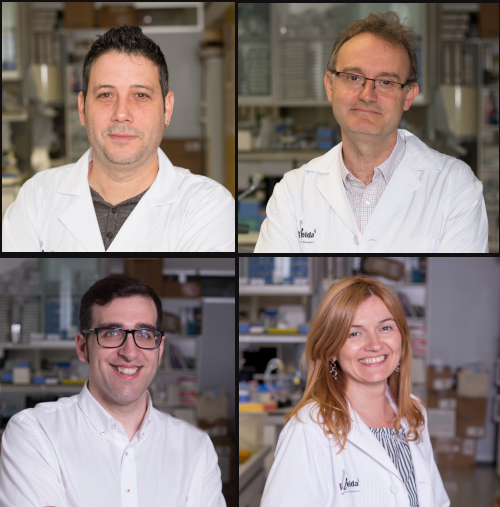The IRBLleida presents 4 samples of interest to the Carlos III Health Institute call for research projects on SARS-COV-2 and COVID-19
IRBLleida has also submitted a project to the Generalitat of Catalonia call
The Lleida Biomedical Research Institute (IRBLleida) has presented 4 samples of interest to the Carlos III Health Institute call for research projects on SARS-COV2 and the disease COVID-19. The estimated budget for project financing is 24 million euros. A research project on COVID-19 has also been submitted to the extraordinary call convened by the Generalitat of Catalonia.
Samples of interest are focus on telemedicine for patients with mild symptomatology, assessment of environmental characteristics in the spread of the coronavirus, a model study in mice to reduce the chances of virus infection, and research with cells with the ECA2 protein, where the coronavirus enters the body. Precisely this last proposal, led by Manuel Portero, principal investigator of the Metabolic Physiopathology research group, has also been submitted to the call of the Generalitat of Catalonia and continues in the second phase of selection of proposals. This regional call is financed with 4 million euros.
The head of the Research group of health care (GRECS) and professor at the University of Lleida (UdL), Montse Gea, has presented a project entitled 'Telemedicine in patients with mild symptoms of COVID-19'. His proposal wants to establish a nationwide system of telematic monitoring of the possible infected. Patients with mild symptoms who remain at home can have an application and different devices to follow up in real time with alerts for healthcare professionals and the possibility of telecare. In this way, the patient has a direct follow-up, the healthcare provider receives more information and the contact and movements of infected people are reduced.
The head of the Urgency and Emergency Multi-disciplinary Research Group, Oriol Yuguero, has presented the proposal 'Evaluation of the environmental characteristics in the spread of the coronavirus'. In this case, the UdL professor has coordinated with the Barcelona Institute of Global Health (ISGLOBAL) to analyze how environmental conditions, especially pollution, can increase the chances of being infected with coronavirus, since by other viruses ( like for example the flu or mumps) that's how it happens.
For his part, the head of Vascular and renal translational research group, José Manuel Valdivielso, wants to investigate the 'Differences of the different antihypertensive treatments in the expression of ACE2 in the pulmonary epithelium'. People with high blood pressure are more likely to develop a serious medical condition when affected by COVID-19. As the virus infects cells through a specific protein (ECA2), this project will use a model of mice with hypertension and will look at how different drugs commonly used in medical treatments can decrease the expression of ECA2 and thus decrease the chances of virus infection.
The professor at the UdL and researcher in the Metabolic Pathophysiology group, Manuel Portero, has presented his proposal 'Therapeutic repositioning aimed at inhibiting ACE2 expression and viral S-trimer proteòlisi'. The coronavirus enters the body through the ECA2 protein, which is mainly expressed in epithelial cells such as those found in the lungs. Manel Portero's proposal wants to grow cells that express ECA2 and will expose them to a multitude of drugs to see what can reduce levels of ECA2 or the viral protein that binds, making it difficult for the virus to enter cells.
On March 18, 2020, the Royal Decree Law 8/2020, of March 17, on extraordinary urgent measures to face the economic and social impact of COVID-19 was published in the Official State Gazette. The objective of the research proposals presented is to contribute to an efficient treatment of the patient and / or the preparation and response of public health. Proposals must be appropriate to the emergency situation and, therefore, allow immediate implementation and start-up in the National Health System, with concrete, early results applicable to the current situation. The expected impact of this research call is:
- Contribute to improve the treatment of the disease in the current pandemic.
- Contribute to improve the diagnosis and clinical management of patients infected with SARS-CoV-2.
- Contribute to the design, development, and implementation of public health measures to effectively respond to the ongoing SARS-CoV-2 epidemic

The researchers: José Manuel Valdivielso, Manuel Portero, Oriol Yuguero and Montse Gea






